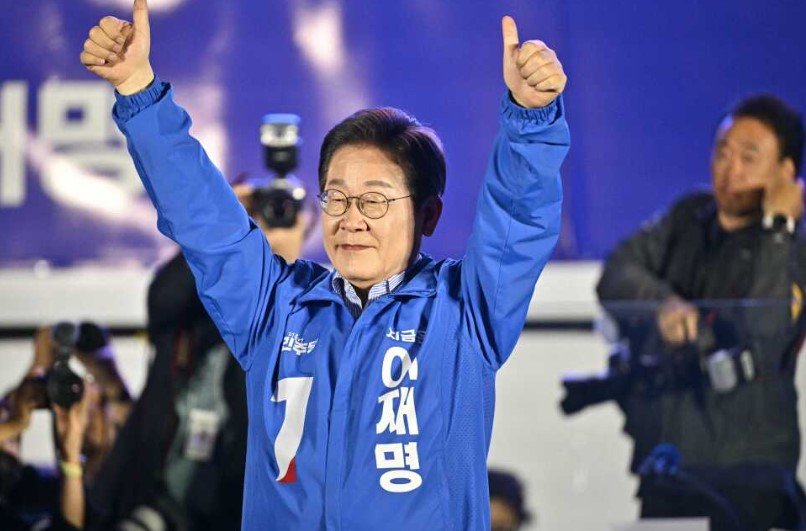The recent South Korean presidential election, which saw liberal candidate Lee Jae-myung secure a clear victory, was deemed fair by the White House on Tuesday. Yet, amid this recognition, Washington voiced unease over China’s potential interference in South Korea’s democratic process.
US Reaffirms Strong Alliance With South Korea Amid Election
The United States and South Korea have long shared a close alliance, and the White House was quick to underscore this bond while addressing concerns about external influence. A senior official responded via email to Reuters, emphasizing, “The US-ROK Alliance remains ironclad. While South Korea had a free and fair election, the United States remains concerned and opposed to Chinese interference and influence in democracies around the world.”
The acronym “ROK” stands for the Republic of Korea, South Korea’s official name. The statement clearly signals ongoing American vigilance against foreign meddling, particularly from Beijing, which has been under global scrutiny for efforts to sway democratic outcomes in other countries.
This endorsement of the election’s integrity came as Lee Jae-myung prepared to assume office. On June 4, 2025, he departed for the National Assembly to attend his inauguration ceremony in Incheon, marking a fresh chapter in South Korea’s political landscape.
Political Friction Surfaces Among US Conservatives Over Lee’s Win
Not everyone in the US greeted Lee’s victory with open arms. Supporters of former President Donald Trump, especially those on the far-right fringe, have voiced sharp criticism. Laura Loomer, a controversial activist who has aligned herself with Trump’s camp, took to social media platform X (formerly Twitter) to express dismay.
Her post read, “RIP South Korea. The communists have taken over Korea and won the Presidential election today. This is terrible.” Comments like these highlight the ideological divide in the US, where some conservatives perceive Lee’s moderate stance—balancing ties between China and the US—as leaning too close to Beijing’s influence.

This rhetoric illustrates a broader challenge: maintaining a nuanced diplomatic relationship in a region where major powers often clash. Lee Jae-myung’s approach aims to keep South Korea’s foreign policy balanced, recognizing the economic importance of China alongside security commitments to the US.
Beijing’s Role in Regional Politics Under Scrutiny
China’s growing global influence has made it a focal point of concern for many democracies, and South Korea is no exception. Although the White House praises the fairness of the election, it remains wary of behind-the-scenes efforts to shape political outcomes.
Experts note that China’s strategy often involves subtle forms of influence: funding sympathetic political groups, leveraging media, and fostering economic dependencies that translate into political sway. South Korea’s position—geographically and economically close to China—makes it especially vulnerable to these tactics.
Yet, Lee’s presidency signals a possible recalibration. His administration has stressed the need for dialogue with Beijing, while simultaneously strengthening military and strategic cooperation with the US. This balancing act is delicate. It requires vigilance against interference but also a pragmatic approach to managing China’s undeniable regional power.
The Stakes for South Korea and Its Partners
Here’s why all this matters:
-
South Korea is a key US ally in East Asia, pivotal for regional security.
-
China is South Korea’s largest trading partner, making economic ties hard to ignore.
-
Any perceived tilt toward China or away from the US could shift the delicate power dynamics in the Indo-Pacific region.
| Factor | Impact on South Korea | Implication for US-ROK Alliance |
|---|---|---|
| Economic Dependence | Heavy trade reliance on China | Potential leverage for Beijing in policymaking |
| Security Cooperation | Strong US military presence on Korean soil | Key deterrent against North Korea threats |
| Political Influence | Risk of Chinese meddling in democratic processes | US aims to safeguard South Korea’s sovereignty |
Lee’s balancing act will be closely watched not just by Seoul and Washington, but also by Beijing, Tokyo, and other regional players.
What Lies Ahead?
South Korea’s new president faces the tough task of steering a middle path between two global giants. Will Lee manage to uphold democratic values while keeping peace with China? Can Washington continue to trust Seoul’s commitment to the US alliance despite its engagement with Beijing?
There’s no simple answer. The dynamics in East Asia are as tangled as ever, with diplomacy, economics, and security all intertwined. One thing’s clear though: the world is watching.
